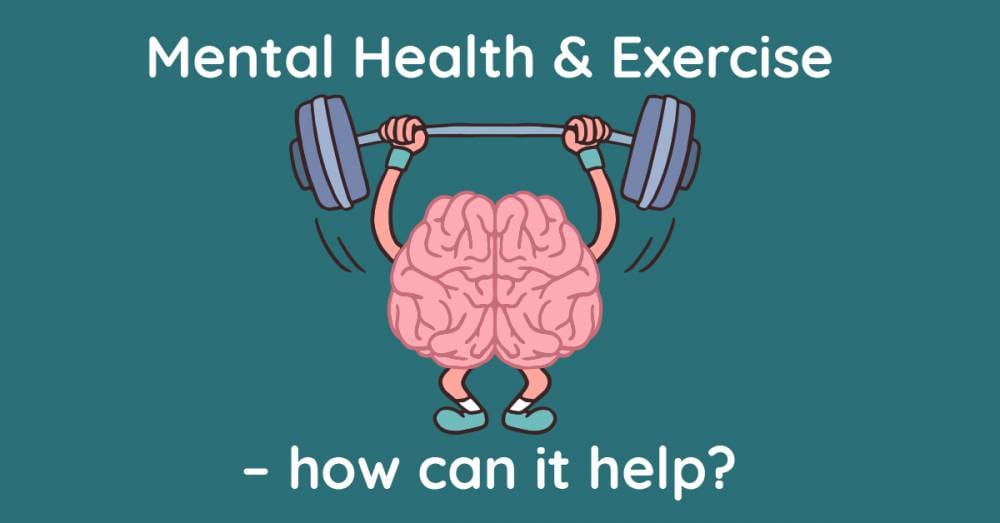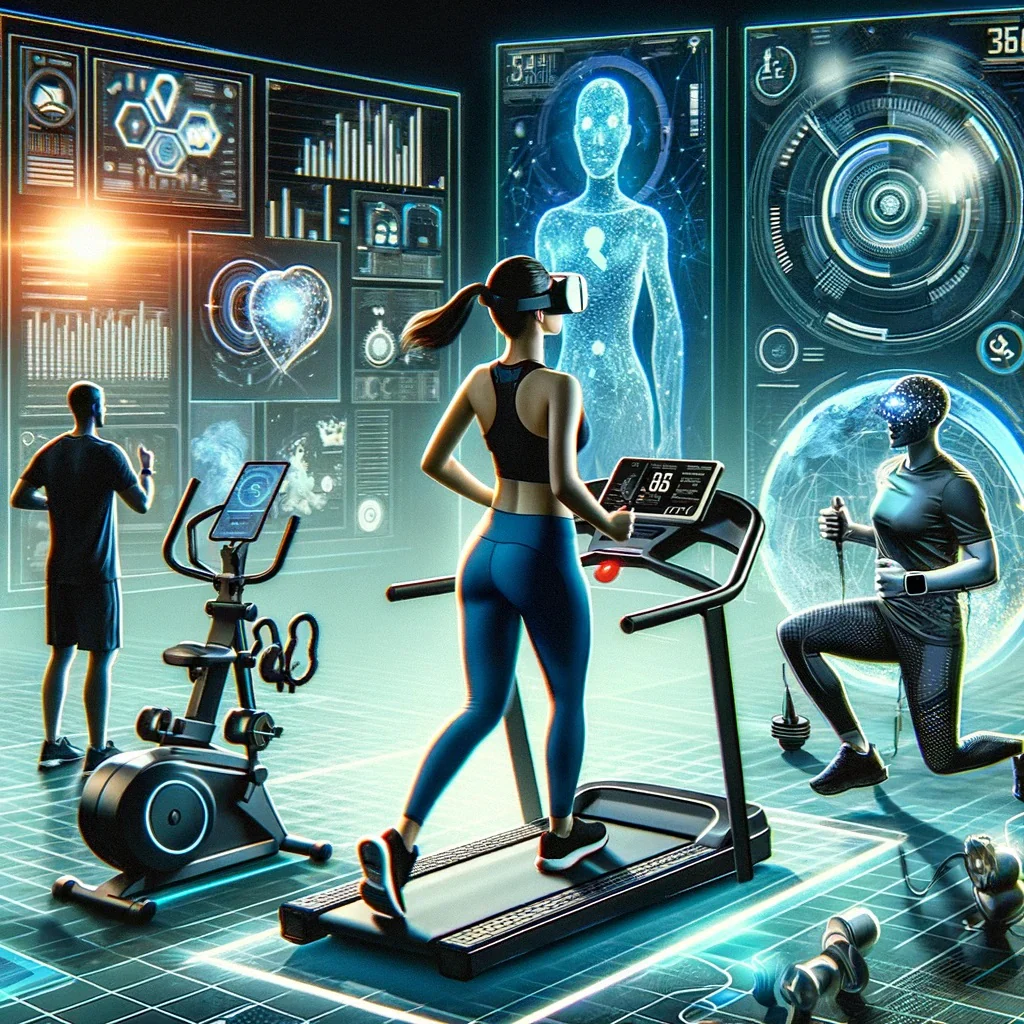In today’s health-conscious society, individuals are increasingly seeking effective ways to enhance their overall well-being. Holistic approaches to preventative healthcare offer valuable strategies that address not just physical health, but also mental and emotional wellness. By focusing on the interconnectedness of body, mind, and spirit, these methods empower individuals to take proactive steps in preventing illness and promoting a balanced lifestyle.
This article explores various holistic practices, including integrative nutrition, physical activity, stress management techniques, and complementary therapies. By implementing these strategies, readers can improve their health outcomes and cultivate a more fulfilling life.
In this article you will find:
Emerging Nutrition Trends for Optimal Health
As we navigate the ever-evolving landscape of health and wellness, nutrition remains a cornerstone of optimal well-being. In recent years, several emerging trends have gained traction, reshaping how we view food and its role in our lives. These trends not only reflect a shift towards healthier choices but also highlight the growing awareness of the impact of nutrition on overall health. Here, we delve into some of the most significant emerging nutrition trends that are poised to influence our diets in the coming years.
Plant-Based Eating
One of the most notable trends is the rise of plant-based eating. More individuals are adopting vegetarian or vegan diets, driven by health concerns, environmental awareness, and ethical considerations. Research indicates that plant-based diets can reduce the risk of chronic diseases such as heart disease, diabetes, and certain cancers. This shift is not just about eliminating meat; it emphasizes incorporating a variety of fruits, vegetables, whole grains, nuts, and seeds.
- Health Benefits: Studies show that plant-based diets can lower blood pressure, improve cholesterol levels, and promote weight loss.
- Environmental Impact: Reducing meat consumption is linked to lower greenhouse gas emissions and less resource depletion.
- Innovation in Products: The market for plant-based alternatives, such as meat substitutes and dairy-free products, is rapidly expanding, offering consumers more choices than ever.
Personalized Nutrition
Another emerging trend is personalized nutrition, which tailors dietary recommendations to individual needs based on genetics, microbiome composition, and lifestyle factors. Advances in technology and data analytics have made it possible for nutritionists and health professionals to provide customized meal plans that optimize health outcomes.
- Genetic Testing: Companies now offer DNA testing to help individuals understand how their bodies respond to different nutrients.
- Microbiome Analysis: Understanding gut health is crucial, as a balanced microbiome is linked to improved digestion and immune function.
- Wearable Technology: Devices that track dietary habits and physical activity can provide insights into how food choices affect personal health metrics.
Functional Foods
The concept of functional foods is gaining popularity as consumers seek foods that provide health benefits beyond basic nutrition. These foods are fortified with additional nutrients or bioactive compounds that can enhance health and reduce the risk of disease.
- Examples: Foods like probiotics in yogurt, omega-3 enriched eggs, and foods fortified with vitamins and minerals.
- Health Claims: Functional foods often come with claims that support immune health, digestive health, and cognitive function, making them appealing to health-conscious consumers.
- Research and Development: The food industry is investing in research to create innovative products that meet the demand for health-promoting foods.
Mindful Eating
Mindful eating is another trend that emphasizes the importance of being present during meals. This practice encourages individuals to savor their food, listen to their hunger cues, and appreciate the experience of eating. By fostering a more conscious relationship with food, mindful eating can lead to healthier choices and improved digestion.
- Benefits: Research suggests that mindful eating can help reduce binge eating, emotional eating, and promote a healthier body image.
- Techniques: Techniques include slowing down during meals, focusing on flavors and textures, and minimizing distractions like screens.
- Community and Resources: Many wellness programs and apps now incorporate mindful eating principles, providing support for individuals looking to adopt this practice.
 As we look to the future, these emerging nutrition trends are reshaping our understanding of health and wellness. By embracing plant-based options, personalized diets, functional foods, and mindful eating practices, individuals can take proactive steps towards achieving optimal health. For more insights on nutrition and wellness, consider exploring resources from the Academy of Nutrition and Dietetics, a leading authority on food and nutrition.
As we look to the future, these emerging nutrition trends are reshaping our understanding of health and wellness. By embracing plant-based options, personalized diets, functional foods, and mindful eating practices, individuals can take proactive steps towards achieving optimal health. For more insights on nutrition and wellness, consider exploring resources from the Academy of Nutrition and Dietetics, a leading authority on food and nutrition.
Innovative Fitness Technologies Transforming Workouts
The fitness landscape is undergoing a significant transformation, driven by rapid advancements in technology. These innovations are not only enhancing workout experiences but also making fitness more accessible, personalized, and effective. From smart devices to virtual training platforms, the integration of technology into fitness routines is reshaping how we approach health and wellness. Here, we explore some of the most innovative fitness technologies that are currently revolutionizing workouts.
Wearable Fitness Trackers
Wearable fitness trackers have become ubiquitous in the fitness world, providing users with real-time data on their physical activity, heart rate, sleep patterns, and more. These devices empower individuals to take control of their fitness journeys by offering insights that were previously difficult to obtain.
- Data-Driven Decisions: With features like step counting, calorie tracking, and heart rate monitoring, wearables allow users to set and achieve personalized fitness goals.
- Integration with Apps: Many fitness trackers sync with mobile applications, providing a comprehensive overview of health metrics and progress over time.
- Community Engagement: Some devices offer social features that enable users to connect with friends, share achievements, and participate in challenges, fostering a sense of community.
Smart Home Gym Equipment
The rise of smart home gym equipment has made it easier than ever to work out from the comfort of home. Devices like smart treadmills, stationary bikes, and strength training machines are equipped with advanced technology that enhances the workout experience.
- Interactive Workouts: Many smart gym machines come with built-in screens that offer live or on-demand classes led by professional trainers, creating an engaging workout environment.
- Performance Tracking: These machines often track performance metrics, providing users with feedback on their workouts and helping them to improve over time.
- Convenience: The ability to work out at home saves time and eliminates barriers such as travel to a gym, making fitness more accessible to a broader audience.
Virtual and Augmented Reality Fitness
Virtual and augmented reality (VR and AR) technologies are creating immersive workout experiences that can make exercise feel more like a game than a chore. These technologies engage users in new and exciting ways, making fitness enjoyable and motivating.
- Immersive Environments: VR fitness programs transport users to different settings, such as scenic landscapes or competitive arenas, enhancing motivation and engagement.
- Gamification: Many VR fitness experiences incorporate game elements, such as rewards and challenges, which can encourage users to push their limits and stay committed to their fitness goals.
- Social Interaction: Virtual fitness platforms often allow users to connect with friends or other participants, adding a social dimension to workouts that can enhance accountability and enjoyment.
AI-Powered Personal Training
Artificial intelligence (AI) is making waves in the fitness industry by offering personalized training experiences through advanced algorithms and machine learning. AI-powered personal training platforms analyze user data to deliver tailored workout recommendations and feedback.
- Customized Workouts: AI can assess an individual’s fitness level, preferences, and goals to create personalized workout plans that evolve as the user progresses.
- Real-Time Feedback: Some AI training apps provide real-time feedback on form and technique, helping users to improve their performance and reduce the risk of injury.
- Accessibility: AI-powered personal training makes high-quality fitness guidance accessible to a wider audience, regardless of location or budget.
As technology continues to advance, the integration of innovative fitness technologies will play a crucial role in transforming how we approach workouts. These tools not only enhance the fitness experience but also empower individuals to take charge of their health and wellness. For further exploration of the latest fitness technologies, visit ACE Fitness, which offers insights into emerging trends and technologies in the fitness industry.
 Mental Wellness Strategies for a Balanced Life
Mental Wellness Strategies for a Balanced Life
In today’s fast-paced world, maintaining mental wellness is essential for achieving a balanced life. As stressors from work, personal relationships, and societal pressures continue to mount, prioritizing mental health has never been more critical. Implementing effective strategies can significantly enhance emotional resilience, promote well-being, and improve overall quality of life. Here, we explore several mental wellness strategies that can help individuals cultivate a balanced and fulfilling existence.
Mindfulness and Meditation
Mindfulness and meditation are powerful practices that encourage individuals to focus on the present moment, reducing stress and anxiety. These techniques help cultivate a sense of awareness and acceptance, allowing individuals to better manage their thoughts and emotions.
- Benefits: Regular mindfulness practice has been shown to lower cortisol levels, improve focus, and enhance emotional regulation.
- Techniques: Simple techniques such as deep breathing, body scans, and guided meditations can be easily incorporated into daily routines.
- Resources: Apps like Headspace and Calm provide guided sessions and tools to help users establish a consistent practice.
Physical Activity for Mental Health
Engaging in regular physical activity is not only vital for physical health but also plays a significant role in mental wellness. Exercise releases endorphins, which are natural mood lifters, and can help alleviate symptoms of anxiety and depression.
- Types of Exercise: Activities such as walking, running, yoga, and dancing can be effective in boosting mood and reducing stress levels.
- Consistency: Establishing a regular exercise routine, even if it’s just a short daily walk, can lead to long-term mental health benefits.
- Community Engagement: Group activities, such as fitness classes or team sports, can foster social connections and provide additional emotional support.
Social Connections and Support
Building and maintaining strong social connections is crucial for mental wellness. Positive relationships provide emotional support, reduce feelings of isolation, and contribute to a sense of belonging.
- Quality over Quantity: Focus on nurturing a few deep, meaningful relationships rather than spreading oneself too thin across many acquaintances.
- Open Communication: Sharing feelings and experiences with trusted friends or family members can help alleviate stress and foster deeper connections.
- Support Groups: Participating in support groups or community organizations can provide additional resources and foster a sense of community among individuals facing similar challenges.
Healthy Lifestyle Choices
Making informed lifestyle choices can significantly impact mental health. Nutrition, sleep, and substance use all play vital roles in emotional well-being.
- Nutrition: A balanced diet rich in fruits, vegetables, whole grains, and lean proteins can improve mood and cognitive function. Foods high in omega-3 fatty acids, such as fish and walnuts, are particularly beneficial for brain health.
- Sleep Hygiene: Prioritizing quality sleep is essential for mental clarity and emotional stability. Establishing a regular sleep schedule and creating a calming bedtime routine can enhance sleep quality.
- Limit Substance Use: Reducing or eliminating alcohol and recreational drug use can lead to improved mental health outcomes and emotional resilience.
Incorporating these mental wellness strategies into daily life can lead to a more balanced and fulfilling existence. For further insights on mental health and wellness, consider exploring resources from the National Alliance on Mental Illness (NAMI), which offers valuable information and support for individuals seeking to improve their mental health.
Holistic Approaches to Preventative Healthcare
In an age where healthcare often focuses on treating symptoms rather than preventing illness, holistic approaches to preventative healthcare are gaining traction. These methods emphasize the interconnectedness of the body, mind, and spirit, advocating for a comprehensive approach to health that goes beyond conventional medicine. By addressing the root causes of health issues and promoting overall well-being, holistic practices can help individuals lead healthier, more balanced lives. Here, we explore several holistic approaches to preventative healthcare that can enhance physical, mental, and emotional health.
Integrative Nutrition
Integrative nutrition combines traditional dietary practices with a holistic understanding of health, emphasizing the importance of food as medicine. This approach encourages individuals to consider how their dietary choices impact their overall well-being.
- Whole Foods Focus: Prioritizing whole, minimally processed foods rich in nutrients can support immune function and reduce the risk of chronic diseases.
- Personalized Diets: Integrative nutrition recognizes that each individual has unique dietary needs based on their health status, lifestyle, and genetic predispositions.
- Mindful Eating: This practice encourages individuals to be present during meals, promoting better digestion and a healthier relationship with food.
Physical Activity as Preventative Care
Regular physical activity is a cornerstone of holistic health. Engaging in exercise not only strengthens the body but also supports mental and emotional well-being.
- Variety of Activities: Incorporating a mix of cardiovascular, strength training, and flexibility exercises can enhance overall fitness and prevent injury.
- Community Engagement: Group activities, such as yoga classes or hiking clubs, can provide social support and motivation, making exercise more enjoyable.
- Mind-Body Connection: Practices like yoga and tai chi emphasize the connection between physical movement and mental clarity, promoting relaxation and reducing stress.
Stress Management Techniques
Chronic stress can have detrimental effects on both physical and mental health. Holistic approaches to stress management involve various techniques that promote relaxation and emotional balance.
- Meditation and Mindfulness: These practices can help individuals cultivate awareness and reduce anxiety by focusing on the present moment.
- Breathwork: Techniques such as deep breathing exercises can activate the body’s relaxation response, lowering heart rate and reducing tension.
- Nature Therapy: Spending time in nature has been shown to reduce stress levels and enhance mood, making it an effective tool for mental wellness.
Complementary Therapies
Complementary therapies, such as acupuncture, chiropractic care, and massage therapy, can play a significant role in preventative healthcare. These modalities focus on treating the whole person rather than just specific symptoms.
- Acupuncture: This ancient practice involves inserting thin needles into specific points on the body to promote healing and balance, effectively managing pain and stress.
- Chiropractic Care: Regular chiropractic adjustments can improve spinal alignment, enhance mobility, and support overall health.
- Massage Therapy: Therapeutic massage can alleviate muscle tension, improve circulation, and promote relaxation, contributing to overall well-being.
Holistic Mental Health Practices
Addressing mental health is a crucial component of holistic preventative healthcare. Strategies that promote emotional resilience can help individuals navigate life’s challenges more effectively.
- Therapeutic Practices: Engaging in therapy or counseling can provide support and coping strategies for managing stress, anxiety, and other mental health concerns.
- Creative Expression: Activities such as art, music, or writing can serve as therapeutic outlets, allowing individuals to express emotions and process experiences.
- Gratitude Practices: Cultivating gratitude through journaling or mindfulness can enhance overall happiness and promote a positive mindset.
By adopting these holistic approaches to preventative healthcare, individuals can take proactive steps towards achieving optimal health and well-being. For further information on holistic health practices, consider exploring resources from the National Center for Complementary and Integrative Health, which offers valuable insights into holistic health and wellness strategies. Holistic approaches to preventative healthcare emphasize the interconnectedness of the body, mind, and spirit, advocating for comprehensive strategies that enhance overall well-being. Key practices include integrative nutrition, which focuses on whole foods and personalized diets, and regular physical activity that supports both physical and mental health. Stress management techniques such as mindfulness, breathwork, and nature therapy are vital for reducing chronic stress, while complementary therapies like acupuncture and massage therapy address the whole person.
To foster mental wellness, individuals should engage in therapeutic practices, creative expression, and gratitude exercises. By adopting these holistic strategies, individuals can proactively improve their health and quality of life. For more insights on holistic health practices, resources from the National Center for Complementary and Integrative Health can provide valuable information and support.


 Mental Wellness Strategies for a Balanced Life
Mental Wellness Strategies for a Balanced Life

